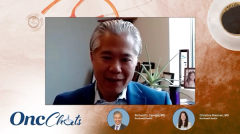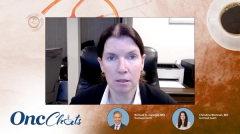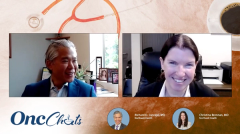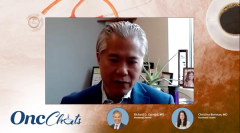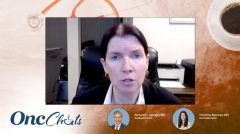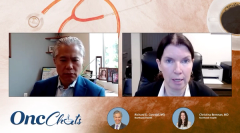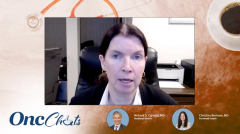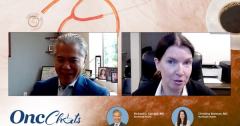
A Close Look at Clinical Trials in Oncology and Beyond: Efforts at Northwell
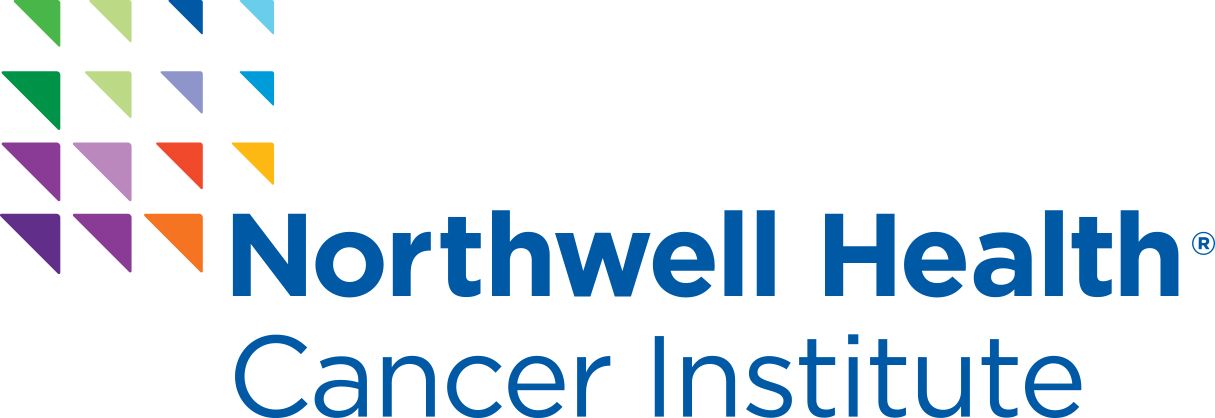
In this episode, experts discuss the growth and strategic development of Northwell's cancer clinical trial programs.
In this episode of OncChats: A Close Look at Clinical Trials in Oncology and Beyond, Richard D. Carvajal, MD, of Northwell Health and Northwell’s Feinstein Institutes for Medical Research, discusses the growth and strategic development of Northwell's cancer clinical trial programs, emphasizing the importance of building a patient-centered portfolio and improving access across multiple locations to increase accruals, with plans to achieve National Cancer Institute (NCI) designation by 2030.
Brennan: [Now, let’s switch] gears to the last [portion] of our conversation. At Northwell, we’re working really hard on improving our clinical trial programs and growing [them]. Why don’t we talk about cancer [specifically]? I know that cancer is on an NCI journey and we’re so grateful [that you are] joining us and [excited to hear] how you’re leading us in that direction. Why don’t you tell us about how cancer programs are going right now for trials?
Carvajal: The growth of the clinical trial program is a major priority that is one of the mandatory pillars of getting that NCI designation, which we will get in 2030 when we apply together with Cold Spring Harbor. What we’ve seen between 2023 and 2024 is a nearly 20% increase in our therapeutic accruals, and we’re on track for another 30% increase this year. So, we have a clinical trial portfolio now, [with] around 400 to 450 active [therapeutic] trials across all the disease spaces.
Looking at the entire portfolio, and this is really important, [a key question is,] how do you build that right portfolio? Before I joined, the focus was on growing a portfolio. When I joined [a bit over] a year and a half ago, I came into a system where we actually had a sizable group of studies, including NCI Cooperative Group trials, sponsored trials with smaller group investigator-initiated trials. What we focused on was making sure that the portfolio was the right fit, which is really critical. Having 100 trials is great but having 100 trials that fit your patient population is even better. And so, that’s what we’ve been doing disease group by disease group. That, in part, is allowing that increase in accruals; it’s just that right-sizing of the portfolio.
A second major priority has been making sure that patients across the system have access to this. It can’t just be at North Shore [University Hospital or Long Island Jewish Medical Center.] Our patients in Staten Island [also] need this, [along with those in] Queens, Westchester, and Manhattan. So, I’ve designated leads at each of those centers who are charged with making sure the portfolio is right and that the processes are in place and driving accruals. By doing that, we’ve seen a 40% to 50% increase in accruals in Manhattan, and we’re seeing a rapid rise in Queens, as well. To your point about access, we are making sure that patients who are seen at one center but may be in Manhattan for a day [could] get their blood test [there]. I can tell you; that I just saw a patient today who I saw in Manhattan on Tuesday, but he just happened to be here, on Long Island, today. Let’s just make it easier [for them however we can]. Let’s see the patients where the patients are at.


